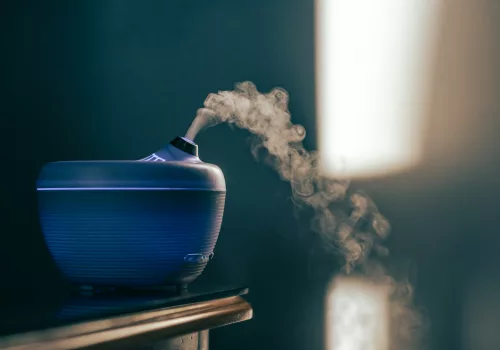Back pain is one of the most common ailments, affecting millions of people worldwide. Whether it’s caused by muscle strain, poor posture, chronic conditions like arthritis or sciatica, or simply a sedentary lifestyle, back pain can be debilitating and affect your quality of life. While conventional treatments like physical therapy and pain medications are often recommended, many people seek natural remedies to relieve discomfort. One such remedy is herbal teas.
Certain herbs have powerful anti-inflammatory and analgesic properties that can help reduce inflammation, muscle tension, and pain. In this article, we will explore 16 herbal teas that can help alleviate back pain and promote overall wellness.
1. Ginger Tea
Ginger tea is well-known for its potent anti-inflammatory properties, making it a popular natural remedy for reducing back pain. Gingerol, the active compound in ginger, has been shown to help reduce inflammation and alleviate pain associated with conditions like arthritis and muscle strain. Drinking ginger tea regularly can help soothe tense muscles and improve blood circulation, which aids in relieving back discomfort.
Ginger tea also has antioxidants, which help protect the body from oxidative stress that can exacerbate inflammation and pain. It’s best to consume fresh ginger tea or use high-quality ginger powder to get the full range of benefits.
How it Helps:
Ginger tea’s ability to reduce inflammation and improve circulation makes it ideal for relieving both chronic and acute back pain. Drinking this tea daily can help reduce pain levels and prevent future episodes of discomfort.
2. Turmeric Tea
Turmeric, a bright yellow spice commonly used in cooking, is a powerful anti-inflammatory herb that has been used in traditional medicine for centuries. The active compound in turmeric, curcumin, has been extensively studied for its ability to reduce inflammation and alleviate pain, especially in individuals suffering from chronic conditions like arthritis and lower back pain.
Turmeric tea can help reduce muscle inflammation and tension, making it an effective natural remedy for back pain. The antioxidants in turmeric also help protect your muscles and joints from further damage caused by inflammation.
How it Helps:
Turmeric tea is an excellent option for those dealing with chronic back pain due to its long-lasting anti-inflammatory effects. Regular consumption can help lower overall inflammation levels and improve joint mobility.
3. Chamomile Tea
Chamomile tea is widely known for its relaxing and soothing properties, making it a great choice for alleviating back pain, particularly when it’s caused by muscle tension and stress. Chamomile has anti-inflammatory and antispasmodic properties, which help relax muscles and reduce pain in the back.
Additionally, chamomile’s calming effects can help reduce stress-induced muscle tightness, which is often a contributor to back pain. Drinking chamomile tea before bedtime can help promote relaxation, reduce tension in the muscles, and improve sleep quality, which is essential for recovery.
How it Helps:
Chamomile tea is ideal for those whose back pain is worsened by stress or muscle spasms. By helping to relax the muscles and calm the mind, this tea can provide relief and promote better restorative sleep.
4. Peppermint Tea
Peppermint tea has analgesic and anti-inflammatory properties that make it an effective natural remedy for back pain relief. Menthol, the active compound in peppermint, is known for its ability to reduce muscle pain and spasms. The cooling sensation provided by menthol can help soothe sore muscles and reduce inflammation, making it particularly useful for those experiencing acute back pain after physical exertion.
Peppermint tea can also help relieve tension headaches and other muscular pain, providing full-body relief that can help improve overall comfort.
How it Helps:
Peppermint tea is great for targeting muscle pain and spasms in the back. Its soothing properties help reduce muscle tightness and promote relaxation, making it an excellent option after a long day of physical activity.
5. Willow Bark Tea
Willow bark has long been used as a natural remedy for pain relief, and it’s often referred to as nature’s aspirin. The active compound in willow bark, salicin, is a precursor to aspirin and has potent analgesic and anti-inflammatory effects. Drinking willow bark tea can help relieve lower back pain, particularly when it’s caused by inflammation or arthritis.
This tea is often recommended for individuals with chronic pain, as it provides long-lasting relief without the side effects associated with over-the-counter pain medications.
How it Helps:
Willow bark tea is ideal for people dealing with chronic lower back pain due to inflammation or joint issues. Its natural pain-relieving properties can offer a significant reduction in discomfort over time.
6. Devil’s Claw Tea
Devil’s claw is a South African herb that has been traditionally used to treat inflammatory conditions such as arthritis and muscle pain. Its active compounds, harpagosides, have been shown to reduce inflammation and relieve pain effectively. Drinking devil’s claw tea can help reduce muscle soreness and stiffness, particularly in the back, making it easier to move and perform daily tasks.
Several studies have found that devil’s claw can be just as effective as conventional anti-inflammatory drugs for treating chronic pain, without the potential side effects of long-term medication use.
How it Helps:
Devil’s claw tea is particularly useful for people suffering from chronic back pain caused by inflammatory conditions. Its potent anti-inflammatory effects make it a go-to option for long-term pain relief.
7. Boswellia (Frankincense) Tea
Boswellia, also known as frankincense, is an herb with powerful anti-inflammatory properties. It has been used for centuries in traditional medicine to treat joint pain, arthritis, and inflammatory conditions. Drinking boswellia tea helps reduce inflammation in the muscles and joints, making it an effective remedy for individuals suffering from back pain due to conditions like osteoarthritis or degenerative disc disease.
Boswellia’s ability to inhibit the production of pro-inflammatory enzymes makes it a strong candidate for natural pain management.
How it Helps:
Boswellia tea is highly beneficial for individuals with chronic inflammatory conditions that cause back pain. Its ability to reduce inflammation at the root of the problem makes it a great option for long-term relief.
8. Green Tea
Green tea is not only rich in antioxidants but also has anti-inflammatory properties that can help reduce muscle pain and stiffness. Catechins, a type of antioxidant found in green tea, help protect muscles from oxidative damage caused by inflammation. Drinking green tea regularly can support muscle recovery, reduce muscle soreness, and protect the back from chronic pain conditions.
Additionally, green tea’s anti-inflammatory effects may be helpful for individuals with arthritis or other inflammatory conditions affecting the back.
How it Helps:
Green tea is an excellent option for those looking to incorporate a healthy, anti-inflammatory beverage into their daily routine. Its combination of antioxidants and anti-inflammatory compounds can provide relief from muscle pain and promote better overall health.
9. St. John’s Wort Tea
St. John’s Wort is well-known for its ability to alleviate depression and anxiety, but it’s also effective for reducing nerve pain and muscle inflammation. Drinking St. John’s Wort tea can help calm the nervous system and reduce pain sensations, making it useful for individuals suffering from sciatica or nerve-related back pain.
St. John’s Wort also has mild analgesic effects, making it helpful for managing chronic pain conditions.
How it Helps:
St. John’s Wort tea is particularly effective for individuals suffering from nerve pain in the back, such as sciatica. Its calming properties help reduce pain sensations and promote relaxation.
10. Fennel Tea
Fennel tea is a lesser-known herbal remedy for back pain, but its antispasmodic properties make it effective at relieving muscle cramps and spasms that contribute to back pain. Fennel contains anethole, a compound that helps relax muscles and reduce inflammation.
Drinking fennel tea can help alleviate muscle tension in the lower back and provide relief from spasms or cramping that exacerbate discomfort.
How it Helps:
Fennel tea is particularly beneficial for individuals who experience muscle spasms or cramps in their lower back. Its ability to relax muscles makes it a useful remedy for both acute and chronic pain.
11. Licorice Root Tea
Licorice root is another powerful anti-inflammatory herb that has been used for centuries to treat various ailments, including muscle pain and inflammation. Drinking licorice root tea can help reduce inflammation in the back muscles, providing relief from chronic pain conditions
like arthritis or fibromyalgia.
Licorice root also helps improve digestion, which can be beneficial for individuals whose back pain is exacerbated by gastrointestinal issues like bloating or indigestion.
How it Helps:
Licorice root tea is ideal for individuals dealing with chronic back pain caused by inflammation. Its anti-inflammatory properties make it a useful remedy for long-term pain management.
12. Valerian Root Tea
Valerian root tea is a well-known natural remedy for anxiety and insomnia, but it’s also effective at relieving muscle tension and pain. Valerian root acts as a muscle relaxant, helping to reduce muscle spasms and cramping that contribute to back pain.
Valerian root tea is especially useful for individuals who experience nighttime back pain, as its relaxing effects can help promote better sleep and reduce muscle tension while you rest.
How it Helps:
Valerian root tea is highly beneficial for people who experience muscle spasms or tension in their back, especially during the night. Its muscle-relaxing properties can help improve sleep quality and reduce pain.
13. Rosehip Tea
Rosehip tea is made from the fruit of the wild rose plant and is packed with vitamin C and antioxidants. Rosehip has been shown to reduce inflammation and improve joint health, making it a great natural remedy for individuals suffering from back pain related to arthritis or muscle inflammation.
Drinking rosehip tea regularly can help reduce stiffness in the back and promote better mobility by lowering inflammation levels.
How it Helps:
Rosehip tea is an excellent choice for individuals with arthritis or chronic inflammatory conditions. Its anti-inflammatory and joint-supporting properties make it a great addition to a back pain management routine.
14. Passionflower Tea
Passionflower tea is another herbal remedy known for its relaxing effects. It helps calm the nervous system and reduce muscle tension, which can alleviate back pain caused by stress or anxiety.
Passionflower’s antispasmodic properties also make it effective for reducing muscle cramps and spasms in the back, making it a soothing tea to drink before bedtime.
How it Helps:
Passionflower tea is ideal for individuals who experience stress-related back pain. Its calming properties help relax the muscles and promote better rest, reducing tension and discomfort.
15. Nettle Tea
Nettle tea is a powerful anti-inflammatory herb that has been used for centuries to treat conditions like arthritis, muscle pain, and joint inflammation. Nettle contains compounds that help reduce pain and improve joint mobility, making it a great option for individuals with chronic back pain.
In addition to its anti-inflammatory properties, nettle tea is also rich in nutrients like iron, calcium, and magnesium, which are essential for maintaining bone and muscle health.
How it Helps:
Nettle tea is highly beneficial for individuals with chronic inflammation in their muscles and joints. Its anti-inflammatory and nutrient-rich profile make it an excellent choice for long-term pain management.
16. Cinnamon Tea
Cinnamon tea is a delicious and warming herbal tea with anti-inflammatory properties that can help reduce muscle soreness and pain in the back. Cinnamaldehyde, the active compound in cinnamon, helps lower inflammation and reduce muscle stiffness, making it a useful remedy for individuals with chronic back pain.
Cinnamon tea is also rich in antioxidants, which help protect your muscles from further damage and support overall recovery.
How it Helps:
Cinnamon tea is a tasty and effective way to reduce muscle pain and inflammation. Its anti-inflammatory properties make it a great addition to any natural pain relief routine.
Conclusion
Herbal teas offer a natural and effective way to manage back pain, whether caused by muscle strain, inflammation, or chronic conditions. By incorporating these 16 herbal teas into your daily routine, you can help reduce inflammation, relax muscles, and promote overall recovery from back pain. Many of these herbs also offer additional health benefits, making them a versatile and holistic approach to pain relief. Whether you’re looking for short-term relief from an acute injury or long-term management of a chronic condition, these teas can help ease discomfort and support your overall well-being.





